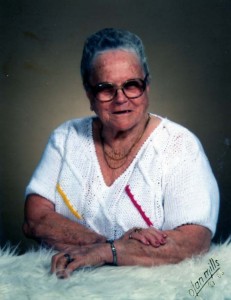“Remember the days of old, consider the years of all generations. Ask your father, and he will inform you, your elders, and they will tell you” (Deuteronomy 32:7).
This morning I watched the events of September 11. The emotions overwhelmed me. I wept. I sat in my chair and remembered.
As the people of Israel prepared to enter the Promised Land, Moses called the people to remember. Most of the generation who had walked out of Egypt and passed through the Red Sea had died in the wilderness. A new generation was about to receive the inheritance of their fathers. As the people looked beyond the Jordan River they were hopeful. As they were anticipating the future, they were encouraged to remember the past.
The surviving elders told their stories. They told of the Passover, of receiving the covenant at Mt. Sinai, and of their long wilderness wandering. As the elders remembered and told their stories, it is certain that the stories provoked powerful emotions: rejoicing as they passed through the Red Sea; awe and fear as they witnessed the theophany at Mt. Sinai; and sorrow as they lost a generation in the wilderness. The elders were telling their stories to a generation that did not experience the earlier events. If not for the memories of the elders, the redemptive history of Israel would have been lost. The elders preserved “sacred memory.”
The biblical concept of remembering means more than to recall. It means to re-live. It means to make an event of a past generation your own. You re-live the event, you experience the emotions of the event, and the event becomes a part of your personal “sacred memory.” This is what should happen when we observe Christmas, Holy Week, and Easter Sunday, and each time we celebrate the Lord’s Supper.
Why remember? Why re-live? For the sake of the children, the citizens of the next generation.
All that generation also were gathered to their fathers; and there arose another generation after them who did not know the Lord, nor yet the work which He had done for Israel. Then the sons of Israel did evil in the sight of the Lord and served the Baals, and they forsook the Lord… (Judges 2:10-12).
If we don’t tell the stories of redemption, they will be forgotten. The children of the Exodus generation entered an undiscovered country – the future. The future is uncertain, filled with dangers and possibilities. As we try to navigate the future we are anchored by sacred memories. We don’t remember so that we can live in the past; we remember so that we may move forward. We are reminded that we cannot lose our way as long as we follow the cloud of glory. When we face great barriers we are reminded that God led our ancestors in the faith through the Red Sea. When we must face giants in battle, we are reminded of God’s faithfulness: “Do not fear! Stand by and see the salvation of the Lord which He will accomplish for you today… The Lord will fight for you while you keep silent” (Exodus 14:13-14).
Through the years I have been honored to study the great theologians of the Christian faith. They have nurtured and fed my soul. However, there is one giant of the faith who nurtured me whose name will not be familiar to most – my paternal grandmother, Mary Ellen Paulk Tomberlin.  Years ago, when in college I returned to my hometown and visited her. She began to tell her story. We remembered together. She told of the Pentecostal revival in which she was converted. She shared testimonies of miracles, shared the grief of losing two children, and told me of her prayers for her unsaved children. When I left her that day I felt as if I had been in the presence of greatness. The sacred memories of my illiterate grandmother have anchored my soul.
Years ago, when in college I returned to my hometown and visited her. She began to tell her story. We remembered together. She told of the Pentecostal revival in which she was converted. She shared testimonies of miracles, shared the grief of losing two children, and told me of her prayers for her unsaved children. When I left her that day I felt as if I had been in the presence of greatness. The sacred memories of my illiterate grandmother have anchored my soul.
Each Sunday as Christians gather for worship we should re-live our sacred memory. We should be moved to tears as we remember the cross and moved to dance with joy as we remember the resurrection. Our sacred memory will guide us as we fulfill the mission of God in uncertain times. Our sacred memory will fill our hearts with hope as we anticipate the coming of Christ.
